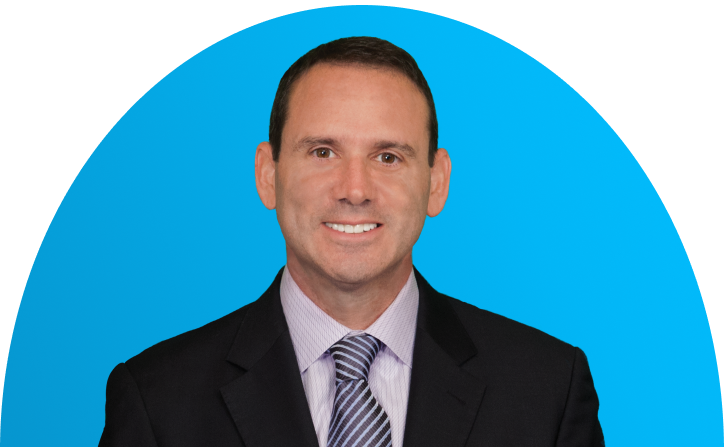Know Your Rights: Car Accidents & Insurance Company Tactics
You have just been in a car accident and it was not your fault.
You are shocked, stunned, full of adrenaline, scared, angry, hurting, worried about the extent of your injuries, worried about paying for your medical care, worried about your car, worried about the passengers in your car, and worried that your insurance will go up because of someone else’s negligence.
While you are experiencing all of these thoughts, emotions, and physical sensations, the at-fault driver’s insurance company has already begun plotting against you.
You are now in a game where you are treated as an object and a number.
The insurance company’s goal of the game is to pay out as low a number as possible. You may not have realized that you are in a game because you are a human being who just wants to feel well after the accident and have your car paid for by the person who hit you. You expect the other driver and their insurance company to do what is moral, just, and right, and that is to fully compensate you for your losses and harms.
Unfortunately, the insurance company has no intention of fully compensating you. They are a business that makes money by accepting our premium payments, but then refusing to pay out on the policy when the time comes to pay.
Car insurance is essentially a con perpetrated on all of us, the general public. We are forced to buy insurance, but then when we try to collect after we are negligently hit by another driver, they fight us tooth and nail to avoid paying the full value for our harms and losses.
Fortunately, I know the game.
I used to represent an insurance company, and saw how heartless they were. I hated how they objectify people into numbers and completely detach themselves from the humanity involved in a car accident. I know their tactics in the game, and what facts they use in Court to try to win the game.
Now, on your side, I can use my knowledge of their game plan to help you.
Ultimately, the insurance company’s strategy is to do one of the following things:
1) blame your current injuries on a prior accident or pre-existing condition;
2) blame your current injuries on something that happened after the accident;
3) point to gaps in your treatment (after the accident) to show that you aren’t as hurt as you say you are;
4) point to the fact that you did not seek treatment immediately after the accident as evidence that you were not really hurt;
5) point to the fact that your car did not have much damage as evidence that you cannot possibly be hurt; and
6) they’ll attempt to limit payment by arguing that you received excessive chiropractic treatment, or that future treatment predictions by your doctors are speculative.
18 Ways We Help You Beat The Insurance Company At Its Own Game
1. Go to the hospital on the day of the accident
A hospital visit indicates you believe that your injury is serious and needs immediate attention. Also, every day you wait to seek treatment is gold to the insurance company. If you wait several days, they won’t believe you’re hurt and they won’t want to award you compensation for pain and suffering. You have to show them evidence that you are suffering every step of the way in this process.
This means you have to consistently treat your injuries for an extended period of time, show evidence of a permanent injury, and show the insurance company how this accident affected your life. Also, if your claim ever goes to court, the insurance company’s lawyer will have excellent ammunition against you if you wait several days to treat injuries after an accident.
2. Take pictures of your injuries
As soon as possible after the accident, take pictures of your bruising and lacerations (if you have them).
3. If you have prior accidents or surgeries…
…on the body parts injured in this accident, make sure you communicate this to your attorney IMMEDIATELY. And expect the insurance company to give you low-ball settlement offers for your claim. Even if another driver is at-fault in your accident, the insurance company will fight paying you. They are armed to the teeth with investigators, adjusters, lawyers, software programs, and databases that know whether you have been in any other accidents (such as car accidents, falls, sports injuries, weight lifting injuries) and filed claims.
At the very beginning of the time you and I talk, I need to know about any prior accidents and injuries. I have ways to minimize their impact, but I absolutely need to know them in order to give you appropriate advice throughout the process. This means that if you have ever had a prior MRI done on any area that has been injured in this accident, then I need to have the MRI and MRI report in my possession.
Please know, if you have made a previous injury claim because of a prior accident, the insurance company will know about it, and their offer to you will be significantly less than if you had no prior accidents. Importantly, I need to know about the prior accidents so that I can attempt to diffuse their impact on your claim.
4. Try to remember exactly how your body was injured inside the vehicle
Bring up each and every area you have pain to your doctors. It is important to try to recall, as best you can, the exact mechanism of your injury.
In other words, if your right shoulder was hurt, how was it hurt? Were you looking over your right shoulder, or was your right arm extended? If you have headaches, what part of the car did your head hit? Was it the driver’s side windshield? Was it the steering wheel?
In many cases, the mechanism of the injury is obvious. For example, an insurance company expects neck and back injuries in a rear-end collision. However, they don’t always expect shoulder or knee injuries. That is why it is critical to remember and stick to the same story of how your injuries occurred.
Also, you MUST tell the doctor which areas of the bodies feel pain, and you must continue to bring up these specified areas throughout your treatment. If you say your knee hurts on the first two visits, but you never mention the knee pain again, the insurance company is not going to compensate you well for the knee.
5. You have to consistently treat your injuries
The thing that kills a case is when a client skips doctor visits or has what they call “gaps” in their treatment. After your initial hospital visit, you should be going to the doctor 2 to 3 times a week. Period. This is something you absolutely have to do in order to get any substantial type of settlement offer or jury verdict.
It doesn’t matter which doctor you go to. You can go to an orthopedic and a chiropractor; a chiropractor twice; a chiropractor and a physical therapist; or, 3 physical therapist visits. It doesn’t matter the specialty initially, but you MUST get treated 2 to 3 times a week for at least 3 months.
If your schedule doesn’t permit this, then you must realize that your settlement will not be great—unless, of course, you have a catastrophic injury involving broken bones, surgery, bleeding on the brain, etc.
6. You must communicate with your attorney consistently throughout your treatment
Although I am not a doctor, I know how your medical treatment (or lack thereof) affects your personal injury case. Remember, your doctor’s concerns are not necessarily in line with making sure your personal injury claim is set up properly.
That’s why it’s important to talk to me about your medical treatment every step of the way. I will not direct your treatment, nor will I make you do anything with your body that you don’t want to do, but I can offer suggestions based upon my experience and knowledge of handling personal injury cases.
7. Know your auto insurance coverage
Your own auto insurance contains $10,000.00 worth of medical coverage and this pays for 80% of your initial medical costs up to the $10,000.00 limit. In the State of Florida, something called PIP insurance is mandatory for all insurance policies. So, regardless of fault, your own auto insurance company will pay for the initial portion of your care. PIP pays 80%, which means that you will be responsible for the other 20%. But, you don’t have to pay the 20% as a co-pay at the time of the visit. It comes out of your settlement later.
Make sure all of your providers bill your auto insurance for your initial treatment, especially the Hospital and the ER physician. If you went to the Hospital and didn’t provide your auto insurance information for billing, please do so immediately so that PIP will pay.
Hospital bills can be astronomical, and if PIP doesn’t pay, there can be a large hospital bill amount that eats into your share of the settlement. In order to get a decent settlement, you MUST, at the very least, use up the full $10,000.00 in PIP.
The reason why is that the insurance company is allowed to offset unused PIP money from your total compensation. If you only use $5,000.00, the insurance company will offer you $5,000.00 less to settle the case because of this offset. So, you need to use up the PIP at the very least. After the $10,000.00 is used up, you can either use health insurance (which we will have to pay back after settlement) or a form of credit called a LOP. The LOP is like credit for medical treatment by your doctor. It has to be paid back out of your share of the settlement.
That’s another reason why it is important for you and I to communicate every step of the way. I need to keep track of your medical costs so that I can gauge them relative to the policy limits.
8. Passive versus active treatment
Insurance companies do not like extensive passive treatment. Passive treatment is much of what a chiropractor does (manual therapy, massage, chiropractic manipulations, electric stimulation, cold packs, etcs.). Insurance companies believe that passive treatment is “palliative” (not a cure or a permanent fix), and therefore not medically necessary. “Active” therapy is physical therapy and treatment from medical doctors.
Chiropractic care and physical therapy is fine, but if you expect a bigger settlement, you will need invasive treatment. Invasive treatment is epidural steroid injections and surgery.
9. If you want a legitimate settlement, you must see M.D.s or D.O.s
Although chiropractors help many people and are considered to be a legitimately-recognized form of medical treatment, insurance companies hate chiropractors and believe they render treatment that is not medically necessary. They believe it’s passive treatment that puts a Band-Aid on a problem but doesn’t fix it.
This means that you need to go to the Hospital; you need to see an orthopedic or a neurologist/neurosurgeon; and, you need to see a licensed physical therapist referred by the chiropractor or orthopedist. Also, if you do go to a chiropractor, an insurance company will only deem 2-3 months “reasonable” and “necessary.” If you treat for longer than that, they won’t offer to pay you for it.
10. The more invasive the treatment, the higher the settlement
Let’s say you aren’t quite ready to make a decision as big as getting surgery. Florida law provides for “future medical treatment” if it is reasonably certain to occur. In order for the insurance company, or a jury, to believe it is reasonably certain to occur, you need to get the injections. Importantly, the medical records must show that the doctor is recommending a specific type of surgery, the projected cost of the surgery, and that it is reasonably certain to occur because you have indicated a willingness to proceed.
It is your responsibility to communicate well with your doctor and ensure that his medical records reflect what you feel and intend they do.
11. Medical records are extremely important, so be careful what you tell your doctor
Often people are embarrassed to discuss their health problems with the doctor, and they present a “tough it out” attitude. They don’t tell the doctor how bad the pain is and how it’s affecting their life. They tell the doctor that they’re feeling ok or better.
What you say to your doctor is critical. They put down what you say in your medical records. If you tell them that you’re feeling much better on your third visit, they will write that down. Guess what? Now the insurance company doesn’t believe that you should get any pain and suffering damages.
Do not underestimate your pain and range of motion limitations with the doctor and the staff. Be specific as to exactly what areas are hurt, and do not diminish your pain.
12. MRIs are extremely important
In Florida, pain and suffering damages are only available when a person has a “permanent injury.” What shows evidence of a permanent injury? An MRI.
You must get MRIs in each area of your body that has pain. You can get 3 different MRIs of your spine (cervical, thoracic, lumbar). An insurance company will ultimately hire a radiologist to say that your MRIs do not show a permanent injury.
Therefore, you must communicate with me before you get your MRIs to give us the best chance of fighting against the insurance company’s expert. If your MRI ultimately shows nothing, then that’s a good sign for your health. However, it will kill the value of your case.
We need to give you the best shot of not having your case killed, so communicate with me about the MRIs.
13. If a doctor refers you to another specialist, GO see the other specialist
For example, if you have been seeing a chiropractor for neck pain, but your chiropractor wants to refer you to a neurologist because you have headaches and suffered head trauma in the crash, you need to see the radiologist. If you don’t see the specialist, the insurance company will not compensate you for the headaches and head trauma.
14. Part of my job is reducing medical bills after the settlement
When I mention your outstanding medical bills in settlement negotiations with the insurance company, do not be alarmed. After you use your PIP benefits, most services are performed on “credit” through a LOP. The doctor is then paid back after the settlement.
The amount billed under the LOP is the full charge of the medical service without any reduction. In an everyday scenario where a doctor is paid by health insurance, Medicare, PIP, etc., the doctor is only paid a small fraction of their overall charge. The charge is often inflated. The end-result is that the doctor does not expect to be reimbursed at 100% of the charged amount.
I will negotiate with your medical providers after your settlement so that you will pocket more of your share of the settlement instead of paying it all to your doctors.
15. Be careful of how you present yourself on social media or otherwise
Insurance companies check your social media and, occasionally (if there’s a lot of money involved), they will send a private investigator to snoop on you. If you post pictures of you on social media having a blast mountain climbing a month after the accident, expect a low offer. If you post pictures on Facebook saying that, “Thank God I’m ok,” after the accident, expect a low offer.
Everything you do is scrutinized, so be sure to present yourself in the best possible light—which most of the time means do not “present” yourself at all on Facebook after the accident! It will destroy a case.
16. If you have an expensive car or a new car, we can also make a diminished value claim
Mere repairs do not restore a damaged vehicle to the value it had before the accident. The resale value is less. So, if you have a new or expensive vehicle, we can get additional money for you through a diminished value claim.
17. It matters how bad your vehicle damage is
Visual impressions count. Some people truly are injured when a vehicle has $500.00 in damage. The question is: will a jury believe you are really that hurt when they see a quarter-sized dent on your bumper? Probably not. So, the lower amount of damage to your vehicle means you can expect a lower offer.
That doesn’t mean we can’t fight it out with the insurance company if you truly are hurt, but it is a difficult battle. If accident photos do not reveal extensive damage, a typical jury if inclined to believe that there weren’t any real injuries.
18. Keep a journal
At some point in the process I am going to talk to you, your family members, your friends, and perhaps your boss. I need to know exactly how this accident affected your life.
What could you do before the accident that you can’t do now? How much more time does it take for you to brush your teeth now versus before? Keep track of how much longer it takes you to do things. What about your sex life? Is it diminished or non-existent now? If so, your spouse will have a claim for loss of consortium, which adds more money into the equation.
Ultimately, we need to quantify exactly how much this accident cost you. The easiest way to do this is to keep track of the time it takes you to do certain things that you could easily do before. Also, what goals did you have that you now can’t accomplish? Have you missed work? How much did that cost you? How many hours of sleep have you lost?
You get the point. I need a narrative, a story, of how this has affected your life, and what you are doing to try to improve your health and overall situation.
If and when you are involved in a car accident, call me immediately. As a team, we can win this game!
COHEN LAW GROUP
DISCLAIMER: This website is for informational purposes only and does not provide legal advice. Please do not act or refrain from acting based on anything you read on this site. Using this site or communicating with Cohen Law Group through this site does not form an attorney/client relationship. This site is legal advertising. Please review the full disclaimer for more information by clicking here.








